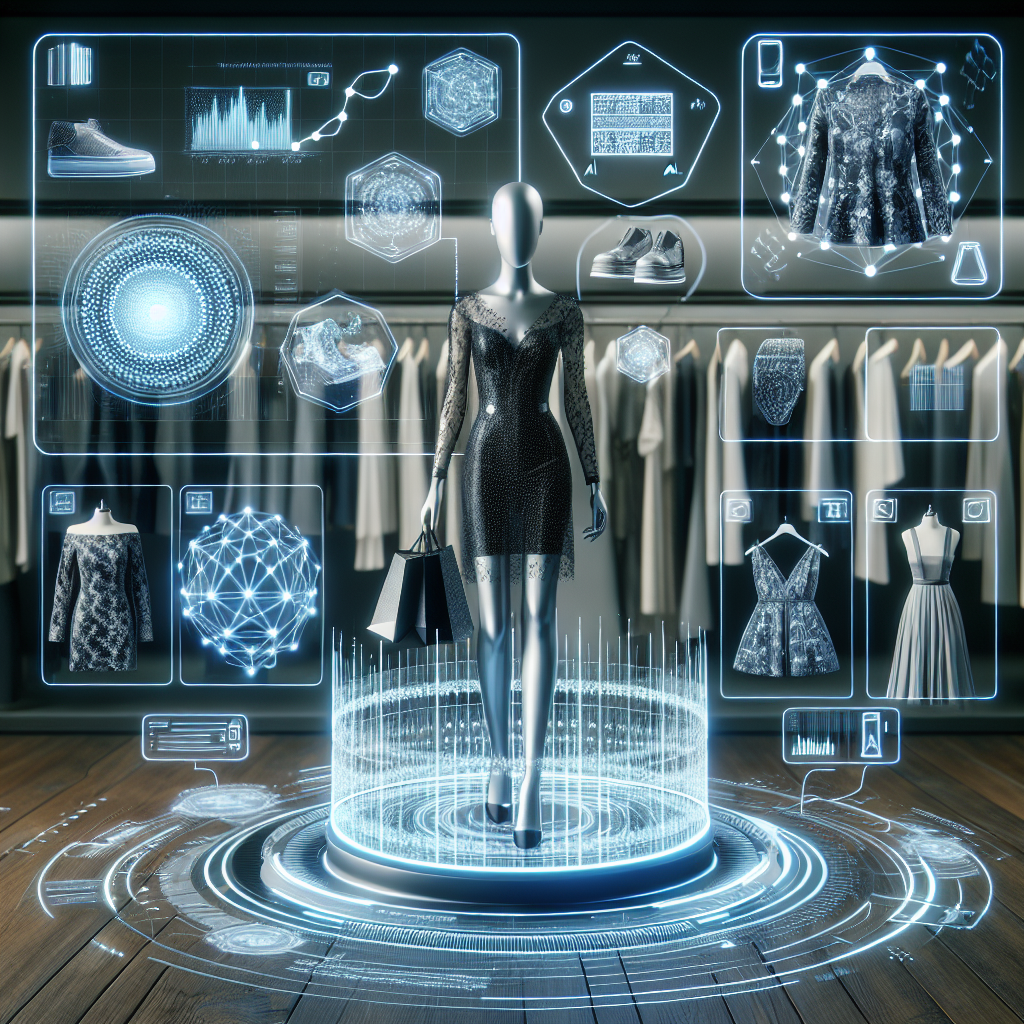Artificial Intelligence (AI) has revolutionized many industries, and the fashion retail sector is no exception. From personalized recommendations to virtual try-ons, AI is enhancing the shopping experience for fashion enthusiasts in numerous ways. In this article, we will explore how AI is transforming the way we shop for clothes and accessories, and how it is reshaping the future of fashion retail.
Personalized Recommendations
One of the most significant ways AI is enhancing the shopping experience in fashion is through personalized recommendations. By analyzing customer data and shopping behavior, AI algorithms can suggest products that are tailored to each individual’s preferences and style. This not only helps customers discover new items that they may not have found otherwise but also makes the shopping experience more efficient and enjoyable.
For example, online retail giant Amazon uses AI to recommend products based on past purchases, browsing history, and even demographic information. This level of personalization helps customers find exactly what they are looking for, leading to higher conversion rates and customer satisfaction.
Virtual Try-Ons
Another exciting application of AI in fashion retail is virtual try-ons. With the help of AI-powered technologies like augmented reality (AR) and virtual reality (VR), customers can now try on clothes and accessories virtually before making a purchase. This not only eliminates the need for physical fitting rooms but also gives customers a more realistic sense of how the items will look on them.
Companies like Warby Parker and Ray-Ban have implemented virtual try-on tools on their websites and mobile apps, allowing customers to see how different styles of glasses look on their faces. This not only enhances the shopping experience but also reduces the likelihood of returns and exchanges, saving time and money for both customers and retailers.
Chatbots and Virtual Assistants
AI-powered chatbots and virtual assistants are also transforming the way customers interact with fashion retailers. These intelligent bots can provide instant support and guidance to customers, helping them find the right products, track orders, and answer questions about sizing, availability, and more. This not only improves customer service but also streamlines the shopping process, making it more convenient and efficient for shoppers.
For example, fashion retailer H&M has implemented a chatbot on its website and mobile app that can help customers find products, provide styling tips, and even place orders. This has not only increased customer engagement but also reduced the burden on human customer service agents, allowing them to focus on more complex issues and tasks.
Predictive Analytics
AI-powered predictive analytics is another game-changer in the world of fashion retail. By analyzing data from various sources, including social media, weather forecasts, and economic trends, AI algorithms can predict future fashion trends and consumer behavior with remarkable accuracy. This allows retailers to anticipate demand, optimize inventory levels, and tailor their marketing strategies to meet the needs and preferences of their target audience.
For example, luxury fashion brand Burberry uses AI-powered predictive analytics to forecast demand for its products and optimize its supply chain. This has helped the company reduce excess inventory, minimize stockouts, and improve overall profitability.
FAQs
Q: How does AI personalize recommendations in fashion retail?
A: AI algorithms analyze customer data, including past purchases, browsing history, and demographic information, to suggest products that are tailored to each individual’s preferences and style.
Q: How does virtual try-on technology work in fashion retail?
A: Virtual try-on technology uses AR and VR to allow customers to try on clothes and accessories virtually before making a purchase, giving them a more realistic sense of how the items will look on them.
Q: How do chatbots and virtual assistants enhance the shopping experience in fashion retail?
A: Chatbots and virtual assistants provide instant support and guidance to customers, helping them find the right products, track orders, and answer questions about sizing, availability, and more, improving customer service and streamlining the shopping process.
Q: How does predictive analytics benefit fashion retailers?
A: Predictive analytics uses AI algorithms to analyze data from various sources and predict future fashion trends and consumer behavior, allowing retailers to anticipate demand, optimize inventory levels, and tailor their marketing strategies to meet the needs and preferences of their target audience.
In conclusion, AI is revolutionizing the fashion retail industry by enhancing the shopping experience for customers in various ways. From personalized recommendations to virtual try-ons, chatbots, and predictive analytics, AI technologies are reshaping the way we shop for clothes and accessories, making the process more convenient, efficient, and enjoyable for fashion enthusiasts around the world. As AI continues to evolve and improve, we can expect even more exciting innovations and advancements in the future of fashion retail.

